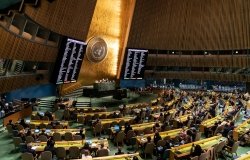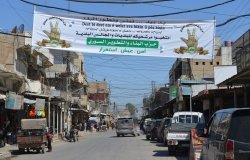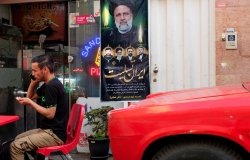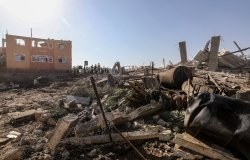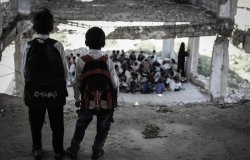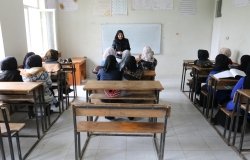
A blog of the Middle East Women's Initiative
Moroccan Family Law Reform: Closing the Gap Between International Commitments & National Law
Leila Hanafi analyzes the ongoing Moudawana (family law) reforms in Morocco. She stresses the importance of reform to bring Morocco in line with its international commitments and to close the gaps between the law as written and in practice.
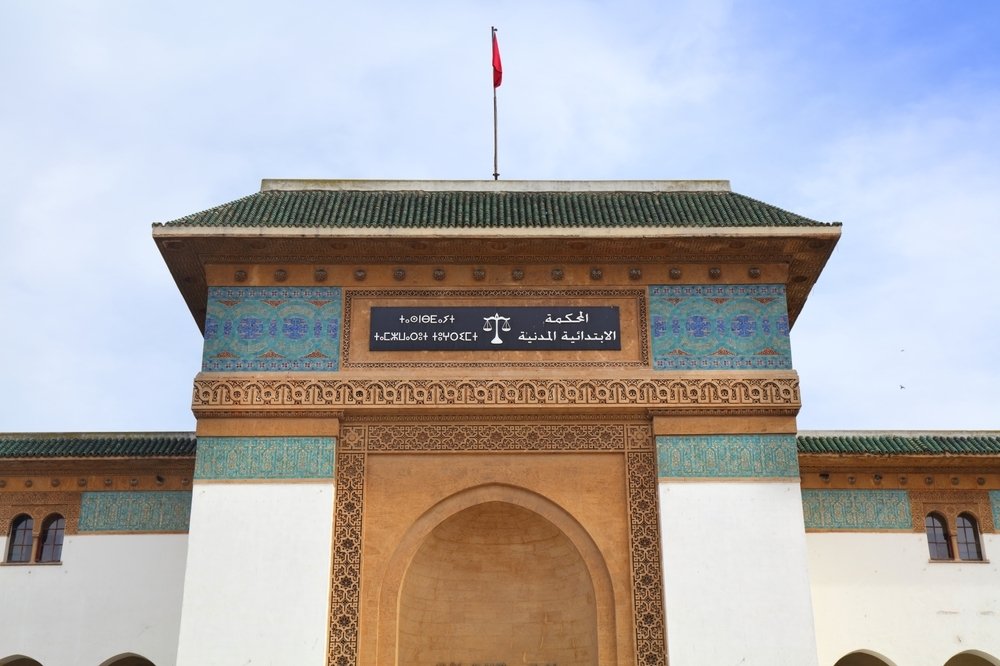
Shutterstock.com/ Tupungato
For Morocco to harness the transformative power of the Moudawana, legislators should seek to close the gaps in the law that permit the extensive use of judicial discretion or bias.
In late June, Moroccan King Mohammed VI referred the Moudawana(family law) to the High Council of the Ulamas, the highest religious authority in Morocco, for them to review and issue a fatwa. The Moudawana is the only area of law in Morocco that adheres to Sharia jurisprudence, and by referring it to the council, King Mohammed VI activated Morocco’s participatory governance model, anchored in the 2011 constitution and a rights-based social contract.
Twenty years after the Moudawana’s passage, the country has seen rapid change in their religious values, laws, and social dynamics. The desire to revise the Moudawana is not held solely by any one demographic, party, or group; it is something that all Moroccans want—albeit in varying forms. Therefore, reforms to the Moudawana ought to begin with an understanding of the limits of law for enacting social change. Despite the substantial improvements in the de jure equality of women, the Moudawanais still striving to realize its full mandate due, in large part, to the practical limitations of legal remedies.
Compliance with international standards
Morocco is considered one of the leaders among the Muslim-majority countries in enhancing the rights of women and children. In recent years, Morocco, which has an enabling environment for advocacy, has taken substantial steps to establish parity between the sexes in constitutional, family, and criminal law.
In the 2011 constitution, Morocco declared its adherence to universally recognized human rights and affirmed the preeminence of international law over national legislation. Meaning, after international treaties are published in the official bulletin, they automatically become part of Morocco’s domestic law.
In line with its commitment to universal human rights law, Morocco recently ratified the first optional protocols to the International Covenant on Civil and Political rights (ICCPR) and to the Convention on the Elimination of All Forms of Discrimination Against Women (CEDAW). This year, the country was also elected to preside over the UN Human Rights Council and their human rights record, including the establishment of national legislation that explicitly protects against all forms of discrimination, which will be reviewed by the UN Human Rights Council UPR cycle.
These are encouraging steps forward in Morocco’s path to protecting the rights of women and children. However, for their implementation to be effective, they need to be enforced in tandem with national legislation.
Law vs practice
The 2004 Moudawana was undoubtedly a progressive piece of legislation that regulates all matters pertaining to family life. The advances include: the right to self-guardianship, the right to divorce, and the right to child custody. Additionally, the legal marriage age rose from 15 to 18 years of age, and women were no longer required to have a male guardian approve their marriage.
That law “retained most of the characteristic elements of the classical Maliki school.” (The Maliki school is one of several traditions of interpretation of Islamic law). It was intended to be “an instrument for social reform. In the selection of different opinions from the fiqh (human understanding of sharia) books, as well as in the wording of the stipulations, the legislator tried to protect the weak, women and children, against abuse of the privileges given by God to men.”
However, gaps persisted between the laws as written and in practice. Although international commitments adopted after the Moudawana was codified urge state parties to refrain from engaging in any act or practice of discrimination against women and to ensure that public authorities and institutions conform to this obligation (Article 2, CEDAW). Some provisions of the original code allow for discrepancies between Morocco’s international commitments and their implementation.
For instance, provisions pertaining to ‘wilayat al-nikah’(guardianship in marriage), and the institution of ‘jabr’ (the right to force a daughter to marry) persist. With these provisions, a father could bypass the prohibition on early and forced marriage by obtaining authorization from a judge. In rural Morocco, where girls tend to be married to far older men, and often when they are minors, this discretion has a disproportionate impact on young girls’ well-being and development. Although discrimination is prohibited de jure by the constitution under articles 7, 19, and 164, as well as through Morocco’s international commitments, de facto discrimination requires additional positive strategies to counter.
Harnessing the power of law
The Moroccan legal system embodies the principles of the country’s mixed lineage as a constitutional, democratic, parliamentary, and social monarchy. Morocco adheres the principle of ‘constrained legalism,’ meaning that laws must be deployed in a way that is “neither utopian in its hopes for legal reform nor rejectionist in its dismissal of legal avenues of transformation.” The king, as the Commander of the Faithful, must also ensure that the laws of Morocco do not contravene Islamic obligations. As such, Morocco stands on a precipice between universalist ideals, Islamic legal traditions, and relativist social positions.
To realize the transformative power of the law, legislative protections must be applied universally and enforce accepted standards of judicial fairness. Thus, it is critical that reforms regarding implementing the law on the books are applied to both formal and informal justice systems. Using this hybrid approach, the reforms would reflect the diverse social reality of Morocco by incorporating traditional mechanisms on equal terms with the formal state-run system and ensuring respect for universal standards that would eliminate disparate treatment across different regions.
Moroccan family law is just one of the many examples of how societies grapple with balancing tradition, justice, and the rule of law with the imperative to make societies safer and more just. While the Moudawana reform is a significant step towards consciously elevating women’s and children’s rights within Moroccan and Islamic traditions, the realization of these rights will hinge on the justice system’s ability and willingness to provide equitable access. For Morocco to harness the transformative power of the Moudawana, legislators should seek to close the gaps in the law that permit the extensive use of judicial discretion or bias. Failure to do so hinders the law from affecting meaningful change.
The law also has a powerful educational function: it sets societal norms. Patriarchal gender relations need to be addressed through legal reform. Not only are the government, the judiciary, religious and local communities, the media, civil society, and educators obliged to protect women and children from discrimination, but they also have the power to promote progressive social change.
This blog post was prepared by the author in their personal capacity.
The views expressed in this piece are those of the author, and do not reflect an official position of the Wilson Center.
About the Author

Dr. Leila Hanafi
Read More
Middle East Program
The Wilson Center’s Middle East Program serves as a crucial resource for the policymaking community and beyond, providing analyses and research that helps inform US foreign policymaking, stimulates public debate, and expands knowledge about issues in the wider Middle East and North Africa (MENA) region. Read more

Middle East Women's Initiative
The Middle East Women's Initiative (MEWI) promotes the empowerment of women in the region through an open and inclusive dialogue with women leaders from the Middle East and continuous research. Read more



